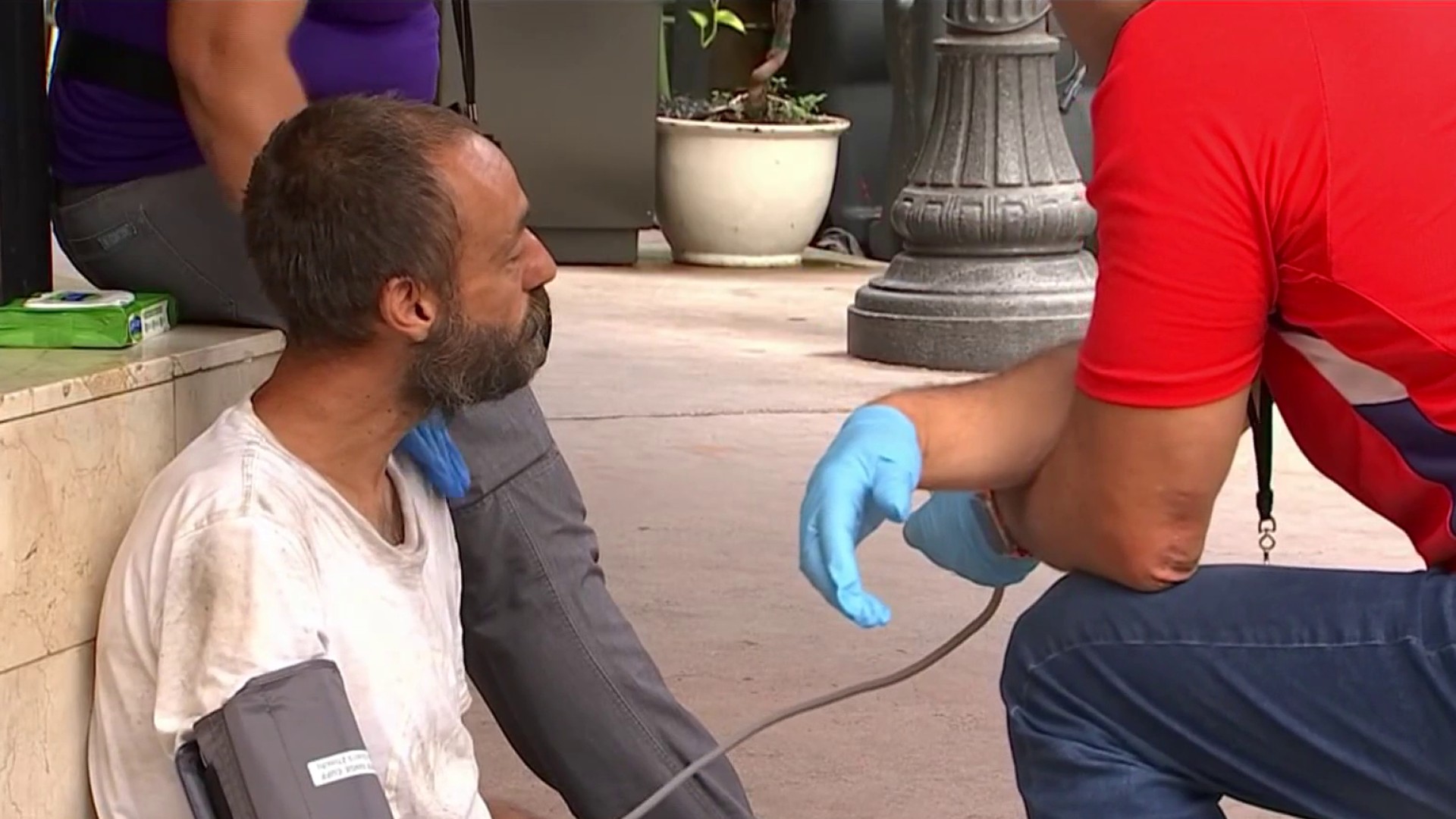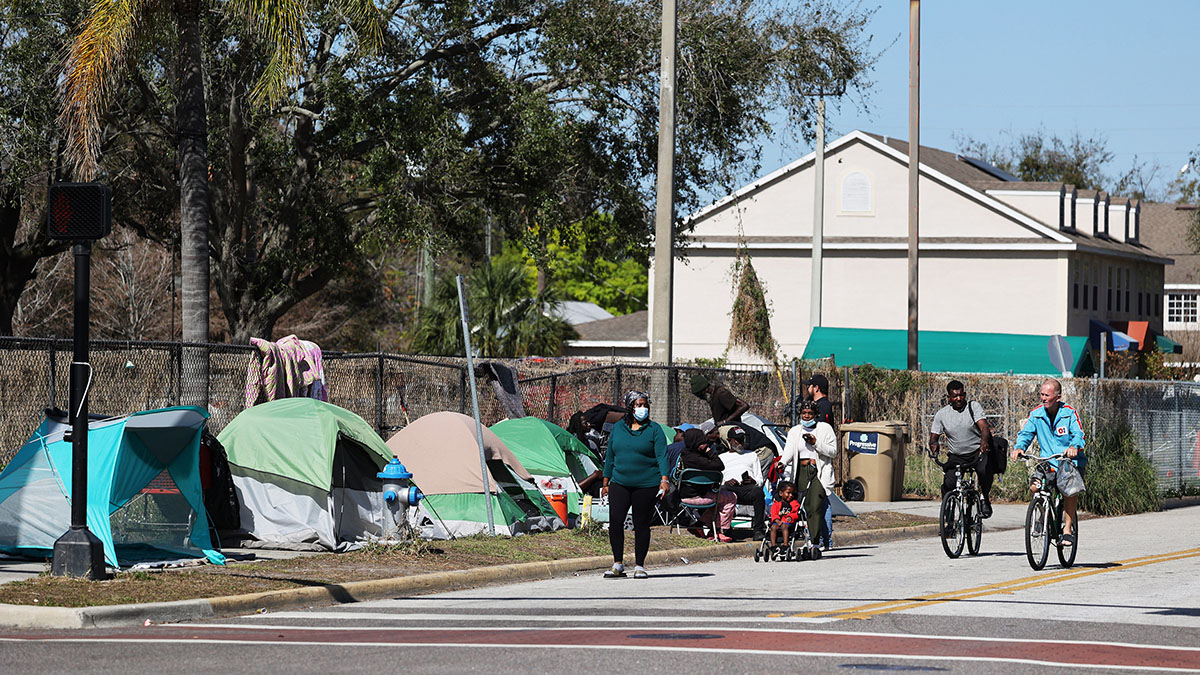Seven days a week, even on holidays, LifeNet4Families go out to help homeless individuals, offering services on mental health, substance abuse and housing. They serve close to 400 meals a day from their Broward pantry.
There, 65-year-old Ward Mosely said he knew about a new Florida law that would ban public sleeping.
"We gotta do what we gotta do. We gotta sleep where we gotta sleep," he said.
Mark Adler, the vice president for LifeNet for Families, called the new law "scary."
The Hurricane season is on. Our meteorologists are ready. Sign up for the NBC 6 Weather newsletter to get the latest forecast in your inbox.
"To criminalize homelessness is a real poor attempt to try and solve a complex problem," Adler said.
Some hesitant about the new ban
On Oct. 1, state law HB 1365, which cracks down on homelessness, will go into effect. It prohibits sleeping on public property, including streets, sidewalks and parks. Local governments would be allowed to designate areas for homeless people to sleep in.
Will Raymond, 61, is an engineer by trade – but he's also living on the streets.
"What this law is…it’s not only unconstitutional. It’s awful because what you’re going to do is fill up the jails and in effect what you have is concentration camps," he said.
Joe Ingroia was in line at the All Saints Catholic Mission in Oakland Park, which has been serving food for the needy since 1990.
“I mean, I don’t see that working," he said of the law. "You know you’re just gonna have people offending over and over 'cause there is no option. If they had an option, they wouldn’t be in public places."
Ingroia has a job but can't keep up with rising rents. He suggested the state should be dealing with rent control instead.
Father Bob Caudill, who runs the mission, is known for his ongoing fight with the city of Oakland Park. He says they've been trying to shut him down for years.
He thinks this new law may help his cause by holding cities and counties more accountable.
“That’s what I’m hoping. That’s what I want," Caudill said. "And I think it’s a good measure."
Homelessness by the numbers in South Florida
In Miami-Dade County, almost 2,800 people are living in emergency shelters and another 1,000 living on the streets.
"Our shelters are bursting at the seams," said Ron Book, the chairman of the Miami-Dade County Homeless Trust, which develops policy, administers funding and oversees services for unsheltered people in the county.
A last count in 2023, Broward had about 1,624 homeless people county-wide, though advocates believe that number is much higher.
Fort Lauderdale has the biggest number of people living on the streets: 780. Hollywood has 164, Lauderhill has 136, and Pompano Beach has 119. Several hundred others are spread out throughout other Broward municipalities.
The number of available beds countywide is only 612 – about 1,000 short.
“We do not have the capacity to handle the homeless population," said Fort Lauderdale Mayor Dean Trantalis.
For the Homeless Trust, the biggest part of that solution is not more shelters, but permanent supportive housing for those that are the most difficult to shelter.
"Which is why we are on such a momentous effort to buy and acquire housing so that we can house those difficult-to-place individuals," Book said.
Finding solutions
Omayra Rivera arrives at what is now her home, a small space in Camillus House.
She takes care of what little she has because she knows what it is like to lose everything. Just a few months ago, she was living on the streets alone and in fear. But at Camillus House in Miami, she has found more than shelter.
"I was homeless on the street, and Camillus really helped me and you never thought you were going to be in that situation," Rivera said, holding back tears. "But now with the opportunities they have given us here, I feel I’m going to make it."
Omayra is one of 23 graduates from Camillus House's Transformative. In partnership with Miami Dade College, these unsheltered individuals are equipped with the training and certifications they need to launch successful careers in the hospitality industry.
"I’m going to get a hotel specialist management job, which starts at an incredible rate of $25 an hour," Rivera said. "Now that’s not seasonal, that’s a job you have every day. It’s definitely a new life, it's new opportunities, it’s a blessing."



